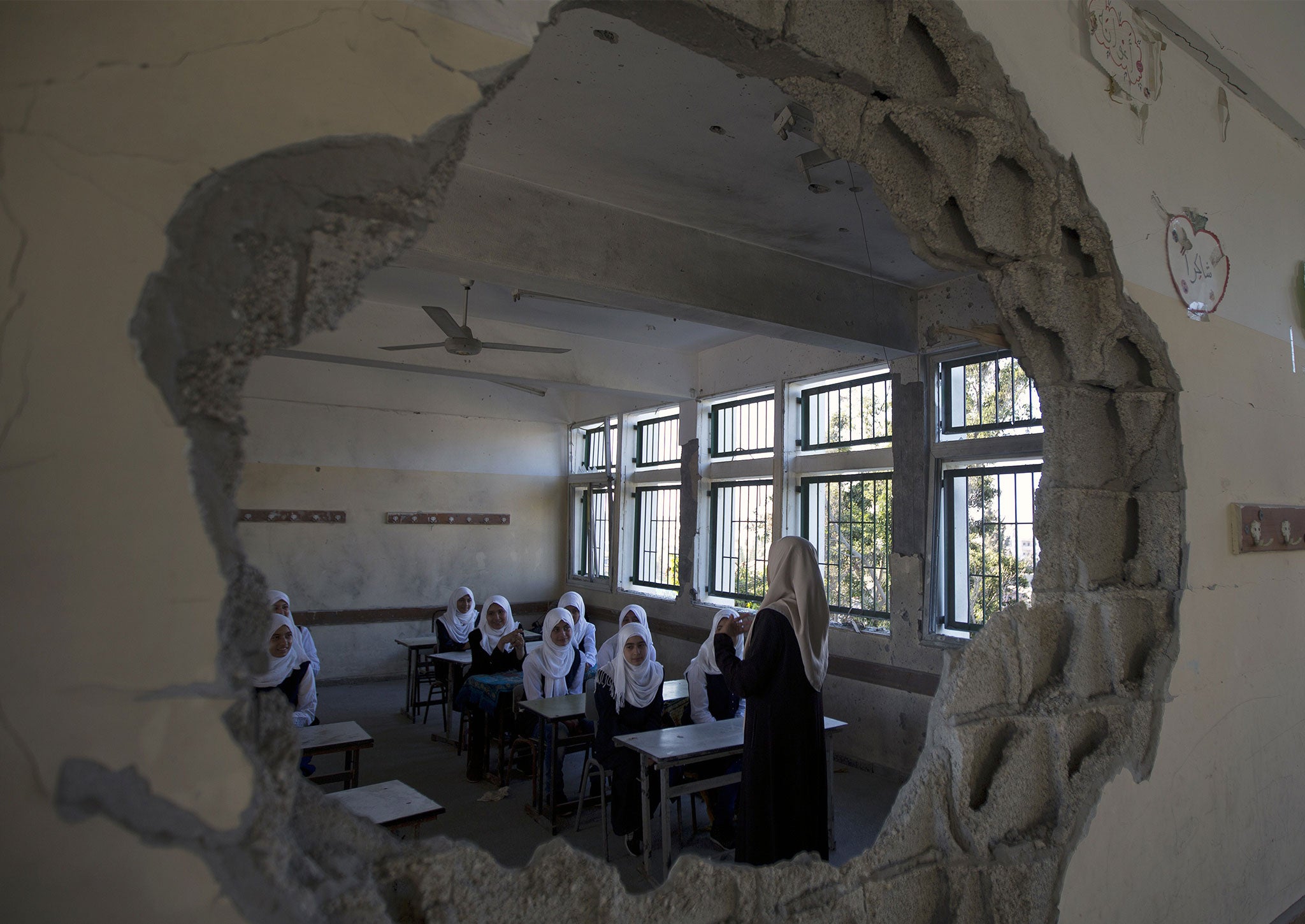After the horrors of Operation Protective Edge, Palestine's children are finally returning to school
As the new school year starts, young Palestinians are proving their determination to overcome adversity through education

The new academic year around the world has begun and it is no different in Palestine. In Gaza, children were supposed to start school on the August 24. However UNRWA postponed it to start on the September 14. When the schools do open, they will face even more over-crowding than before and severe resource shortages.
Indeed, the UNRWA spokesperson Christopher Gunness said that 29 of his organisation's schools are being used to house 63,000 displaced Gazans. Transportation is of course another issue, as this latest assault has totally flattened areas while turning roads into mountains of rubble and concrete.
Children in Gaza will also face new obstacles to learning, with many of them suffering severe physical injuries and, according to OCHA, hundreds of thousands of them suffering psychological trauma from having seen three wars in merely six years.
Last week, the University College of Applied Sciences in Gaza held a graduation ceremony. Students sat behind posters of fellow students and would be graduates who were killed in the Israeli assault. Families received certificates on behalf of their killed loved-ones. One of the most poignant moments came when, as the only survivor of her entire family, a little girl called Maisam received her deceased sister’s diploma.
Meanwhile in Occupied East Jerusalem, on the 31st of August, 16 year-old school-boy Mohammed Sunuqrut was shot by Israeli Police in Wadi Joz. According to his family he was talking on the phone to his aunt when he was shot in the head at close range with a rubber-coated bullet.
Mohammed fell to the ground and was subsequently beaten by police. Israeli police claim he was shot in the leg with a sponge tipped bullet and hit his head when he fell. Recent leaked autopsy results, however, seem to support the family's claim. He died from the injuries he sustained one week later.
Fear for the safety of their children in the face of Israeli violence (state sponsored, or otherwise) has been growing among Palestinians. Indeed, according to local news sources, just this week the Israeli army took 13 children (six of whom are 12 years old) by force, without any parental consent. In scenes that resembled a kidnapping, they were dragged away in the early hours of the morning, having been accused of throwing stones.
In addition to violence, Palestinian school children in Jerusalem and also within Israel, face inequitable education to their Jewish counterparts. In East Jerusalem alone there is a shortage of over 400 classrooms and 330 kindergarten classrooms. The problem here does not lie in budget constraints; funding for new schools in East Jerusalem is regularly approved.
The problem lies in planning policy which prevents the necessary level of development in Palestinian neighbourhoods. In other words, the Jerusalem municipality would rather fund the construction of more illegal settlements than provide Palestinian children with an adequate learning environment.
The reality of the Israeli Occupation and its siege on Gaza is that the new school year in Palestine looks disheartening. The victims of Israeli aggression and brutality are too often young people.
But Palestinians are stubbornly determined to overcome adversity, and remain committed to learning in the face of great tragedy. In 2006, the World Bank described Palestine as one of the most the "most educated population[s]" in the Middle East and North Africa. Education has become a pillar of their identity and they know that it will be the key to their freedom.
In a lecture at Oxford University a few years ago, the Palestinian academic Dr Karma Nabulsi said: “The role and power of education in an occupied society is enormous. Education posits possibilities, opens horizons. Freedom of thought contrasts sharply with the apartheid wall, the shackling checkpoints, the choking prisons”.
And it is here, in this notion of education as a powerful tool against oppressors, where we may find hope. Hope that the situation will improve, and hope that an educated Palestinian people will themselves bring an end to the Israeli Occupation.
Bookmark popover
Removed from bookmarks